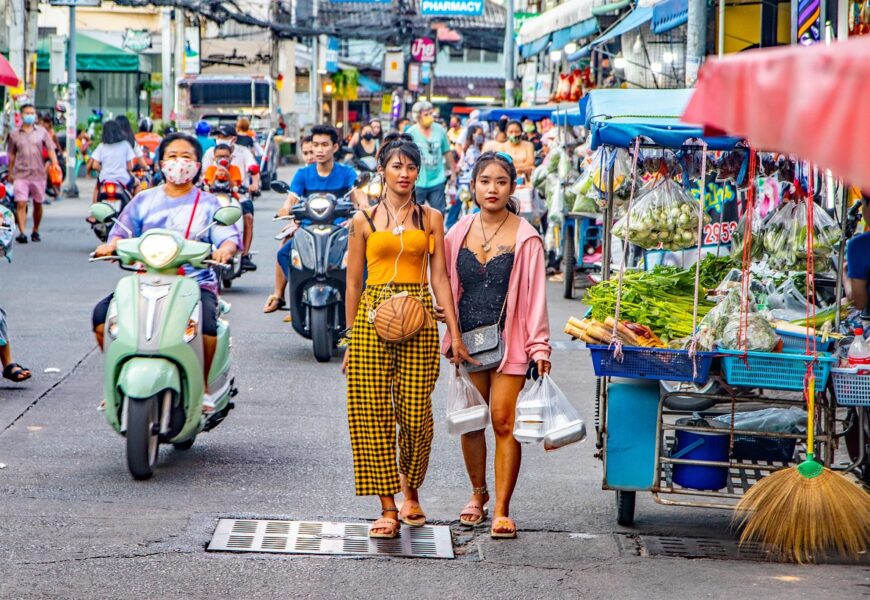Thailand represents a complex and nuanced cultural landscape where women play increasingly significant roles in modern society, challenging traditional perceptions and creating dynamic social transformations. The contemporary Thai woman navigates a sophisticated intersection of historical traditions, emerging economic opportunities, and evolving gender dynamics that make her experience both unique and compelling. From urban centers like Bangkok to rural communities, Thai women demonstrate remarkable resilience, intelligence, and adaptability in confronting societal expectations while pursuing personal and professional aspirations.
Historical Context of Thai Women’s Social Roles
Historically, Thai women have occupied multifaceted positions within Southeast Asian social structures, often enjoying greater autonomy and economic participation compared to women in many neighboring cultures. Buddhist philosophical traditions and matrilineal inheritance practices have contributed to a relatively progressive environment where women were not systematically marginalized. Traditional Thai society recognized women’s economic contributions, particularly in agricultural and trading sectors, which established foundational respect for female economic agency.
During the 20th century, educational opportunities dramatically expanded for Thai women, enabling unprecedented social mobility. By the 1980s and 1990s, women were increasingly represented in professional fields like medicine, law, education, and business management. These educational achievements fundamentally transformed gender dynamics, creating pathways for women to challenge conventional gender roles and expectations.
Contemporary Professional Landscape
Modern Thai women are making significant professional strides across diverse industries, demonstrating exceptional competence and leadership. In corporate environments, women occupy high-ranking executive positions in multinational corporations, financial institutions, and technology companies. Statistics indicate that approximately 40% of management roles in Thailand are held by women, significantly higher than many global averages. This professional representation reflects not just individual achievement but broader societal shifts toward gender equality and meritocratic advancement.
The technology and startup sectors have been particularly transformative, with young Thai women emerging as entrepreneurs and innovators. Many are founding digital businesses, creating technological solutions, and challenging traditional career trajectories. These professional achievements are reshaping perceptions of women’s capabilities and potential within Thai society.
Cultural Values and Personal Identity
Thai women navigate a sophisticated balance between preserving cultural traditions and embracing contemporary global perspectives. Family remains a central cultural value, with strong intergenerational connections and mutual support systems. However, younger generations are redefining familial expectations, prioritizing personal development, career goals, and individual autonomy. This evolution represents a nuanced negotiation between respect for traditional values and pursuit of personal aspirations.
Religious practices, particularly Buddhism, continue to influence personal identity and social interactions. Many Thai women integrate spiritual practices with modern lifestyles, finding meaningful connections between traditional wisdom and contemporary challenges. This holistic approach allows for personal growth while maintaining cultural continuity.
Education and Empowerment
Educational attainment represents a critical pathway for Thai women’s empowerment. Current enrollment statistics show women consistently outperforming men in higher education, with approximately 55% of university graduates being female. This educational excellence translates into increased economic opportunities, social mobility, and personal agency. Universities across Thailand are producing highly skilled female professionals in fields ranging from engineering and science to humanities and arts.
International scholarship programs and global educational exchanges have further expanded horizons for Thai women, enabling cross-cultural experiences and global perspectives. These opportunities contribute to a more cosmopolitan understanding of gender dynamics and personal potential.
Social Challenges and Ongoing Transformations
Despite significant progress, Thai women continue confronting systemic challenges related to gender equality. Issues such as workplace discrimination, unequal pay, and persistent cultural stereotypes remain areas requiring continued advocacy and structural change. Grassroots movements and feminist organizations are actively working to address these challenges, promoting legal reforms and societal awareness.
The digital age has provided powerful platforms for women’s voices, enabling broader dialogue about gender issues, personal experiences, and social expectations. Social media and online communities have become critical spaces for sharing narratives, challenging stereotypes, and building solidarity across diverse backgrounds.
The story of Thai women is one of continuous evolution, resilience, and transformative potential. From historical traditions to contemporary global contexts, Thai women demonstrate remarkable adaptability, intelligence, and strength. Their experiences reflect broader social changes, challenging simplistic narratives and embodying complex, multifaceted identities. As Thailand continues advancing in the 21st century, women will undoubtedly play pivotal roles in shaping social, economic, and cultural landscapes, representing dynamic agents of progress and innovation.









